GEAB 130
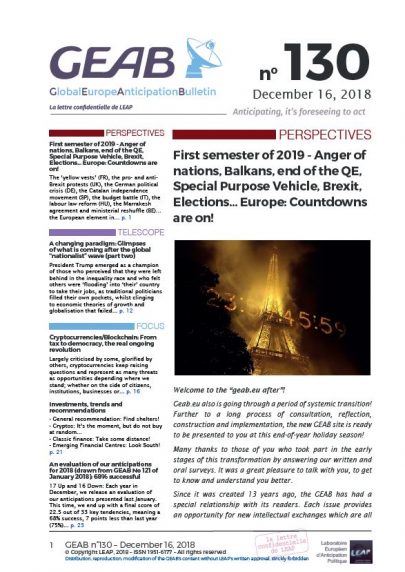

The ‘yellow vests’ (FR),[1] the pro- and anti-Brexit protests (UK),[2] the German political crisis (DE),[3] the Catalan independence movement (SP),[4] the budget battle (IT),[5] the labour law reform (HU),[6] the Marrakesh agreement and ministerial reshuffle (BE)[7]… the European element in the increasingly violent crises currently feeding the national news is striking.
Disclaimer: We recommend that you pay particular attention to the numerous footnotes supporting this article because the global news is indeed worrying.
The European crisis, manifested and accelerated by the result of the British referendum, has precipitated the need for a complete overhaul of the European project that has been outstanding for two years now. However, two years later, in a Europe lacking leadership, the mobilisation of countless actors (political movements, governments, economic interests, foreign powers, etc.), in search of both solutions and the means to implement them, is becoming more and more visible in the form of a rat race in which different actions cancel each other out, revealing to the Europeans the gigantic political quagmire of the continent and throwing them out into the streets, angry and panicked.
Unfortunately, the different national translations of this unique European crisis are imprisoning both citizens and politicians inside their borders more than ever before. If there is, in fact, only one major European crisis, each nation sees it operating in a very different way to their neighbours, making it increasingly difficult for their leaders to react. Yet, a common crisis needs to identify a common response. But the chances of this joint response coming from the inside is diminishing as Europeans sink into the troubled waters of their narrow national gaze.
For 13 years, the GEAB has been working to identify patterns in the apparently disparate news of a system which is notoriously globalised. In this article dedicated to the European crisis in the run-up to the EU parliamentary elections, we will dig to the heart of this rich news, trying to make sense of the chaos and indicate the density of the schedule.
A Babel of strategies and strategists
After taking this necessary pause, let’s go back to the fundamentals of the European timetable, loaded as it is with conflicting issues over the next six months.
– End of ECB’s Quantitative Easing[8].
– Reform of the eurozone.
– Launch of the Special Purpose Vehicle (SPV) and the internationalisation of the euro.
– Signing of a new trade agreement with the United States.
– Balkans, a probable explosion to come.
– Actual exit of the United Kingdom from the EU.
– European elections.
Let’s focus particularly on the last two.
– There is less than two months between these two events (March 29 for Brexit, May 23-26 for the European elections), and we are aware that while the former should take place in only three months, it directly affects the latter.
– The prospect of these two deadlines mobilises a variety of actors to combine various strategies.
– As an additional source of chaos, strategic axes working towards Brexit day are not strictly the same as those leading to the elections date, as they do not mobilise exactly the same actors.
– Another significant cause of panic is that these strategies move on within an unstable future, obliging each actor to foresee a whole series of plan Bs. The questions currently arising concerning the conclusion or not of UK’s exit are not harmless, determining for example, the presence or absence of British voters in the European election. To sum up, we therefore have many actors strongly mobilised in relation to two distinct European events, the first of which creates uncertainty about the context in which the second will take place. And as these events approach, strategies begin to emerge from the laboratories where they were being designed “en route” to an increasingly crowded sky. Unavoidable crashes ahead…
Global context: time is running out!
Even so, everything would be fine if Europe were alone in this world. But European changes must be set in an international context undergoing the same type of stressful redefinition staging a rat race in which another surfeit of actors take part: international organisations in charge of global stability; national states trying to break free from the stranglehold of stability imposed by the precedents, but become incompatible with new realities; superpowerful multinational economic players playing their games; all while populations are literally crushed under this fight of titans. Let’s summarize the battles that most concern the Europeans.
Europe-Russia: First of all, there is the Ukrainian trap into which Europe and Russia fell in 2014. All efforts to (hopefully) get out of that trap failed miserably. Today, the schism of the Eastern Church, which Ukraine initiated, blocks again any prospect of ending the crisis[9]. Yet time is running out! Russian Foreign Minister Lavrov is sending Europe more and more worried messages about the situation in the Balkans[10]. Here Serbia is threatening to invade Kosovo[11], while the latter decides to arm itself militarily[12]. As we have often written, if the Euro-Russian relationship can no longer be built around Ukraine, as it should have happened, it is the Balkans that should now force us to do it. A division of this region would have consequences even more serious than that of Ukraine.
As we write this article, the situation continues to worsen… The Balkans are really on the brink of a new war in which Europe and Russia can not help but support their camps…
Middle East / Special Purpose Vehicle: There is the Middle East trap of the latent conflict between Iran and Saudi Arabia, around which two strategies intermingle. That of President Trump who plans to start the regional transformation with Iran, and the Europeans’ plan to start with Saudi Arabia. The Khashoggi issue has seriously questioned the initial advantage enjoyed by the Trump-Israeli-Saudi camp, handing over some momentum to the Euro-Turkish-Russian-Iranian side now. But nothing is final, nothing is played out. Counter-strategies are piling up, cancelling each other out, making action more complex and postponing the outcome.
Yet again, time is running out! Europe has linked its Middle Eastern policy to a strategy of internationalisation of the euro. This is the real reason why Europe took this relatively unexpected step in favour of Iran and Russia against Israel and Trump. Iran’s pressing demand for the continuation of EU-Iran trade justified the creation of this famous Special Purpose Vehicle (SPV), a mechanism designed to allow trading in euros to escape the sanctions the US is able to exercise when dollars are used[13]. But SPV means internationalisation of the euro, no less! This internationalisation the GEAB saw appear on the horizon in 2006 when we had our eye on the proposed Iranian oil exchange… in euro[14]. Thirteen years later, Europe seems finally ready to brave the prohibition of the internationalisation of its currency, taking advantage of the bad reputation of the current American President and the legitimacy of respecting international agreements (such as the nuclear deal signed with Iran in 2015[15]). But a ban remains a ban and the prospect of the arrival of a third international currency (dollar, yuan and euro) on the world monetary scene is not likely to please everyone (useless to say), so any plan to implement blocking strategies is good. The launch deadline is imminent[16]!
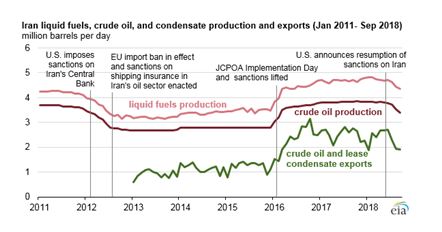
Figure 1 – Iranian oil production, 2011-2018, according to the calendar of North American sanctions. Source: Safety4Sea.
US-China: The China/US trade war provides a third axis of strong tensions crossing Europe. Again, it is about helping Europe avoid falling into the trap of having to choose camps. The prospects are blurred, oscillating between a trade deal that Trump is trying to negotiate with Xi[17] and violent attacks which began to take place, inaugurated by the incarceration of Huawei’s financial director, Meng Wanzhou. An act expedited by Canada of course, but requested by the US Dept of Justice[18] first and foremost. China immediately responded to that by arresting two Canadians[19]. When you start taking prisoners, the war is already underway. And the hints of independence until recently expressed by Canada (before the summer) have fizzled[20], leaving Europeans puzzled as to the relevance of theirs[21]. In fact, there will be no need to scratch for long before you find a Europe (rightly) afraid of the arrival of the Chinese giant in its little yard. That said, instead of degenerating into closing ranks on China, this concern would act better to motivate the negotiation of Euro-Chinese trade treaties, both protective of the interests of each side and the fluidity of their trade. Is the Huawei case and its repercussions sending Europe[22] in the right direction? Here again, the multiplicity of points of view leads to a multiplicity of “good directions”, each one fighting to impose their own outcome.
First defeats of the great battle for EU’s takeover
Now let’s look at what is trickling down to the news and on the field of this titanic fight, starting with the first victims.
France / Yellow Vests: Unbeknown to its main protagonists, the crisis of the Yellow Vests just closed down the French attempt to take the EU’s reins via Macron, on issues like eurozone reform[23], European democracy[24] and strategic independence[25]. The retreat that the French president had to make[26] and his consequent political weakening at the EU level put an end to his vision of Europe[27], a vision that was all too French (too centralising), and essentially obsolete as of now. History never serves the same dishes up twice: we now have to deal with Europeans in full distrust of anything that carries the word “Europe”. Macron’s list of failures when it comes to his project is long: rejection of his proposed reform of the eurozone[28]; sweetening of the Franco-German proposal for a budget of the eurozone[29]; rejection of the idea of transnational lists for the next elections[30]; rejection of the GAFA European tax draft[31]… As for the common defence project, his very French-spoken statements suggesting that Europe must build its own army to protect itself “against the US, China and Russia”[32], have not allowed him to convince the French. They have also meant that he will probably lose some of the other Europeans and definitely also the US[33]. If one day we’ll see a common European defence or a reform of the euro, it is not Emmanuel Macron who will be able to take credit for it.
Germany / CDU: Since we spoke also of Germany, let’s stay there for a moment.
Login

Geab.eu also is going through a period of systemic transition! Further to a long process of consultation, reflection, construction and implementation, the new GEAB site is ready to be presented [...]
Future developments: What will be the new normal? President Trump emerged as a champion of those who perceived that they were left behind in the inequality race and who felt [...]
Largely criticised by some, glorified by others, cryptocurrencies keep raising questions and represent as many threats as opportunities depending where we stand; whether on the side of citizens, institutions, businesses [...]
General recommendation: Find shelters! You will understand when reading this issue that the clouds are gathering during the end of this year and the beginning of the next. Take out [...]
An evaluation of our anticipations for 2018 (drawn from GEAB No 121 of January 2018): 68% successful
17 Up et 16 Down Each year in December, we release an evaluation of our anticipations presented last January. This time, we end up with a final score of 22.5 [...]

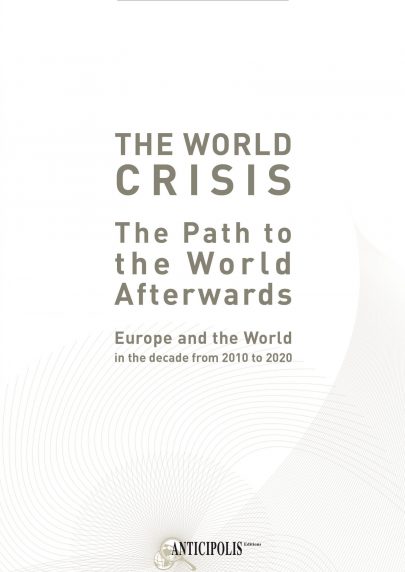
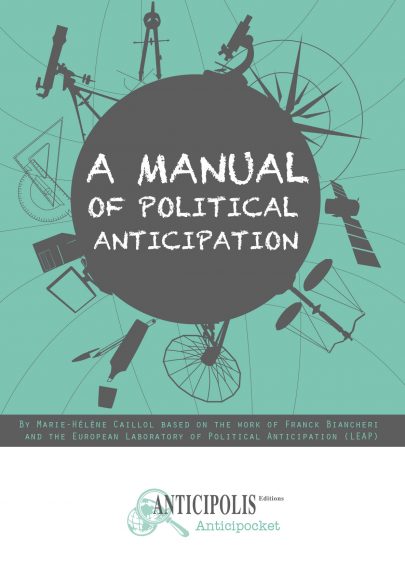
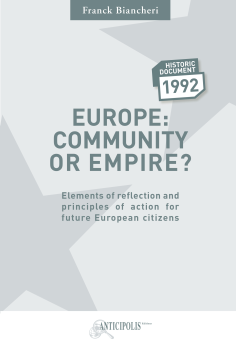
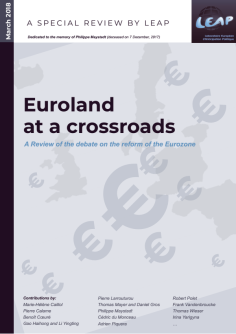
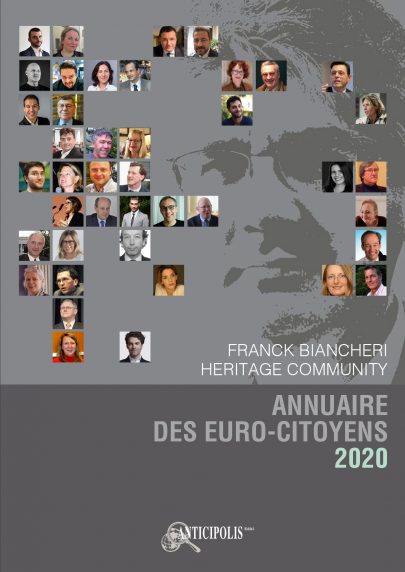
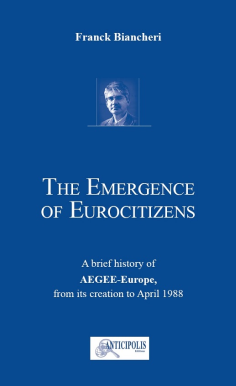

Comments